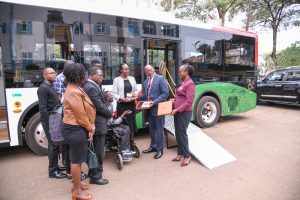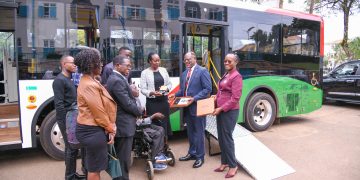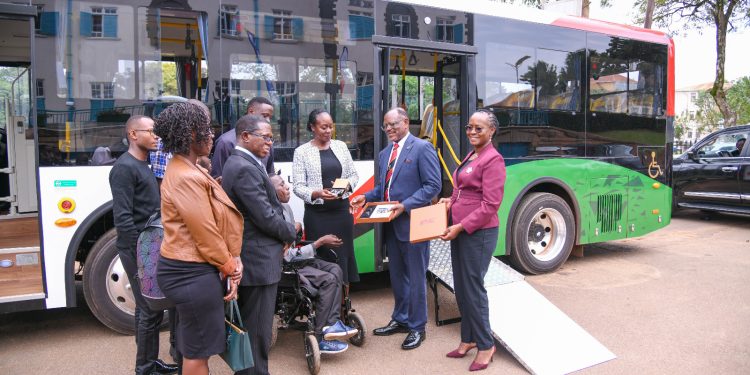Makerere University has announced a series of groundbreaking initiatives aimed at strengthening agricultural research, inclusive mobility, and scientific innovation — including the acquisition of 640 acres of land in Kyankwanzi, new eco-friendly buses from Kiira Motors, an anti-tick vaccine, and the upgrading of its Innovation Hub.
Speaking during a press conference at the university’s Council Room on October 7, 2025, Vice Chancellor Prof. Barnabas Nawangwe said the developments demonstrate Makerere’s resolve to generate solutions that directly impact Uganda’s communities and economy.
“These projects reaffirm our mission to apply research and innovation to real-world challenges,” Prof. Nawangwe said. “We are aligning Makerere’s work with Uganda’s social and economic transformation agenda.”
640 Acres for Agricultural Training and Research
Prof. Nawangwe revealed that on September 26, 2025, the Government of Uganda officially handed over one square mile of land in Kyankwanzi District to the university. The land will host the Makerere University Agro-Demonstration and Training Facility, which will serve as a living laboratory for hands-on agricultural training, research, and community engagement.
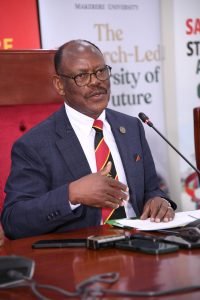
“This facility will transform subsistence agriculture into a productive, market-oriented enterprise,” the Vice Chancellor said. “We will train farmers and extension workers in sustainable land use, pest control, climate-smart agriculture, and agribusiness management.”
He added that the initiative aligns with the university’s broader mission to bridge academic knowledge and community impact.
New Buses from Kiira Motors
Makerere also announced the acquisition of three modern buses from Kiira Motors Corporation on September 27, 2025. Two of the buses are diesel-powered, while the third is electric — designed specifically to improve accessibility for students and staff with special needs.
“This initiative speaks directly to our core values of inclusivity, equity, and care for all members of the university community,” Prof. Nawangwe noted. “By ensuring everyone can move freely and safely, we are fostering a learning environment where all can thrive.”
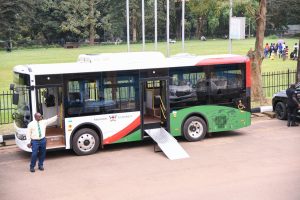
He praised Kiira Motors for being a product of Makerere’s own research ecosystem, saying the partnership highlights the university’s contribution to Uganda’s growing innovation sector.
“Kiira Motors was founded on research from our College of Engineering, Design, Art and Technology,” he said. “It is proof that university knowledge can translate into practical solutions that serve society.”
Anti-Tick Vaccine Breakthrough
Makerere’s College of Veterinary Medicine, Animal Resources and Biosecurity (COVAB) has achieved a major scientific milestone with the successful formulation of an anti-tick vaccine.
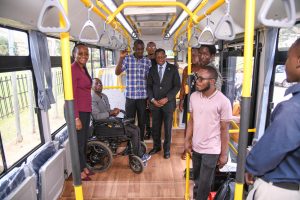
The vaccine, which has demonstrated an efficacy rate of 86%, is expected to reduce calf mortality by 14% and increase productivity in the livestock sector, which contributes about 19.4% to Uganda’s GDP.
“Once approved, the vaccine will reduce losses in milk and meat production by up to 29% and minimise reliance on imported acaricides,” Prof. Nawangwe explained. “It’s a clear example of Makerere’s role in solving national challenges through homegrown innovation.”
The vaccine is now awaiting clinical trials and regulatory approval before commercialisation.
Innovation Hub Upgraded
The university’s Innovation Hub, originally established in 2022 as the Unipod, has been upgraded to the Makerere University Technology and Innovations Centre (MUTIC) with support from the UNDP’s Timbuktoo Africa Initiative.
The state-of-the-art facility will nurture ideas into viable companies and includes 10 makerspaces equipped for design, textiles, renewable energy, e-mobility, and multimedia production.
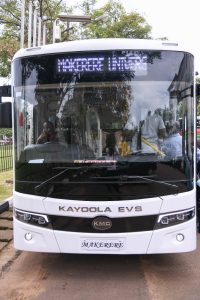
“MUTIC will serve as a launchpad for student and staff innovations,” said Prof. Nawangwe. “It positions Makerere as a leading driver of Africa’s innovation and entrepreneurship ecosystem.”
He added that MUTIC will operate under a board chaired by the Deputy Vice Chancellor for Finance and Administration, with members representing students, academia, government, and the private sector.
Prof. Nawangwe concluded that these initiatives demonstrate Makerere’s continued evolution as a hub for research-driven transformation. “Together, these efforts underscore Makerere’s commitment to building a modern, inclusive, and innovation-led Uganda,” he said.
